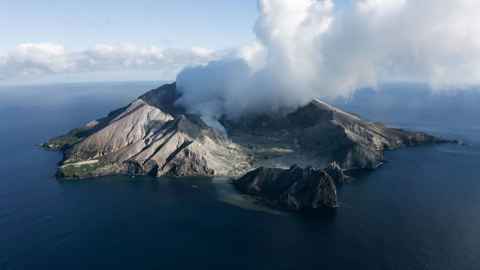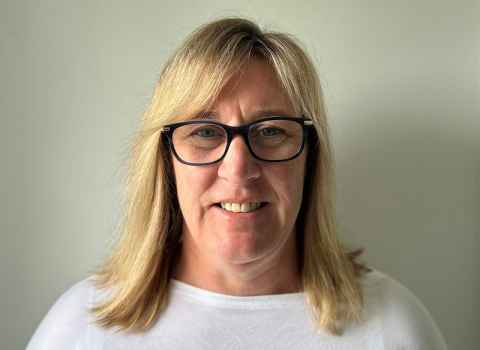Lessons from Whakaari: nurse’s frontline experience prompts PhD
30 November 2023
When Adele Ferguson clocked in at work on 9 December 2019, there was no way she could have predicted what lay ahead of her that day.

As a nurse at Whakatāne Hospital Adele had seen a lot of things over the course of her 30-year career, but nothing could prepare her for the tragic events set to unfold at 2.11pm when Whakaari/White Island erupted.
As the closest medical centre to the volcano, Whakatāne Hospital, a rural hospital with a small emergency department, would become ground zero for the initial health response to the eruption, a disaster that would ultimately claim the lives of 22 people.
Within half an hour of a mass casualty alert going out to the hospital, Adele and her team received 31 status one and status two patients, in what was “a huge shock for everyone”.
“The first [victims] arrived by private helicopter,” says Adele. “And that was when it all kicked off.”
Although staff at the hospital had planned and trained for emergency scenarios, no one was prepared for a disaster of this magnitude unfolding on their doorstep.
“It was kind of unimaginable,” says Adele, who was working as a nurse educator for the intensive care unit/emergency department and resuscitation coordinator at the time.
“New Zealand had never seen anything like this.”
As the extent of the tragedy became increasingly clear, everyone at the hospital pitched in to do their bit, from doctors and nurses to orderlies and cleaners, in an inspiring effort to save lives.
“It was all-hands-on-deck for everyone around the hospital,” says Adele.
“I think that’s the important thing about a rural community – everyone just comes in to help. And it was absolutely amazing teamwork.”

Adele continues to work part-time as a nurse at Whakatāne Hospital, while also completing a PhD part-time at the University of Auckland. Through her studies, she is taking a closer look at how staff responded that day, in a bid to help other hospitals across the country be better prepared for future emergencies. Adele, whose research centres around healthcare resilience in major incidents, says she is looking at the “positive aspects” of what went right that day, “to focus on what we can learn from it”.
She is being supported in her studies by a Victoria League Nursing Doctoral Fees Award. The Award was established in 2022 and is funded by the Victoria League (Auckland) Charitable Trust. Adele, says she is “really fortunate and grateful” to be one of the inaugural winners of the award.
Having been on the frontline of the hospital’s response to the disaster not only gives her a first-hand perspective of what happened that day, it also puts her in a unique position to carry out fieldwork and interview her colleagues.
“It’s a really difficult subject to talk about but because I was there and understand what they went through, I think that's been quite beneficial,” she says. “It’s also beneficial for other people to be able to tell their story – hopefully it’s healing for some people as well.”
Adele says that as well as being appreciative of the support from the Victoria League, she is also “very grateful to the people who have participated in my study and the support that I get from my work colleagues – this wouldn't be possible without them.”
Media contact
Helen Borne | Communications and Marketing Manager
Alumni Relations and Development
Email: h.borne@auckland.ac.nz